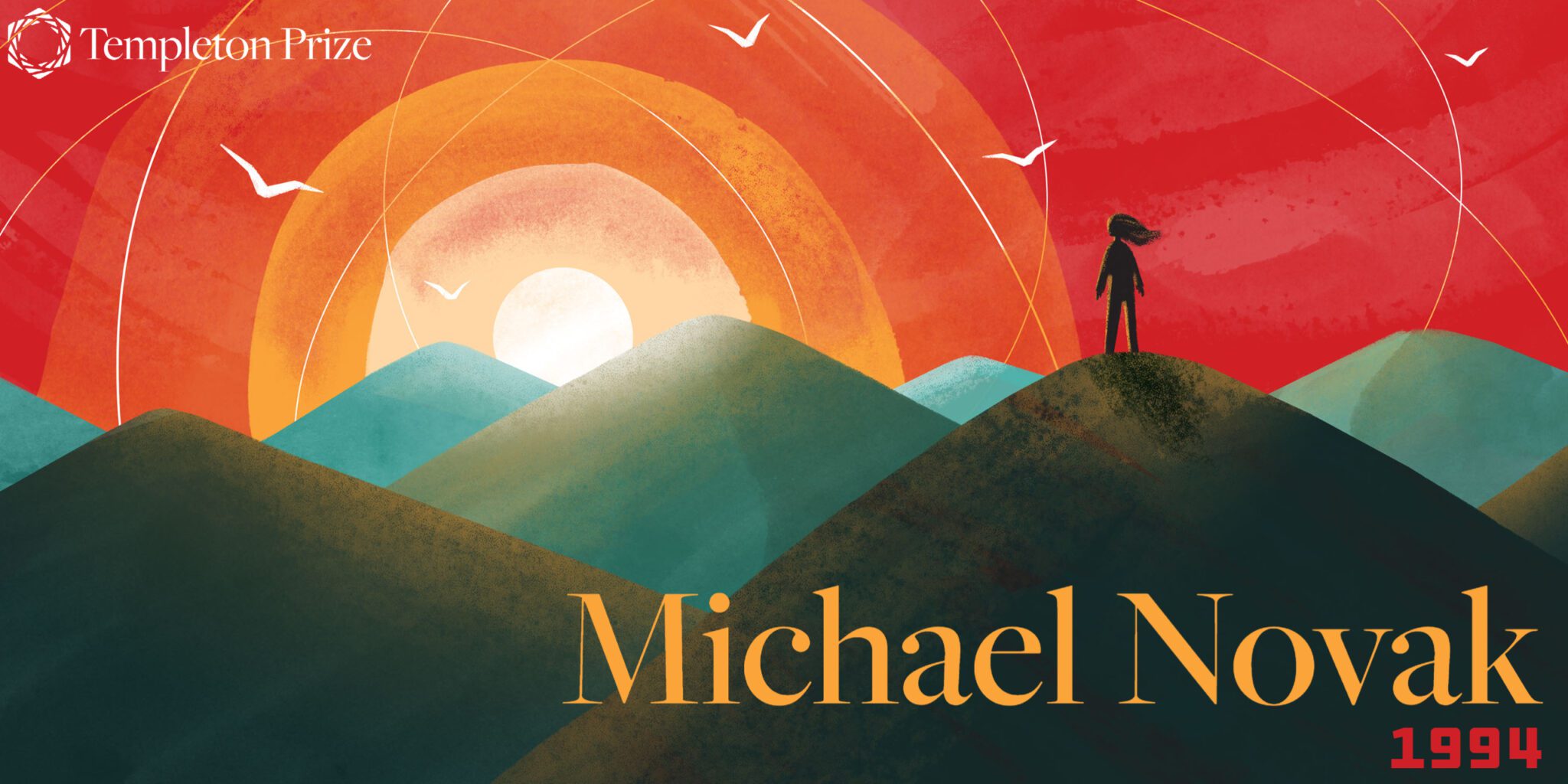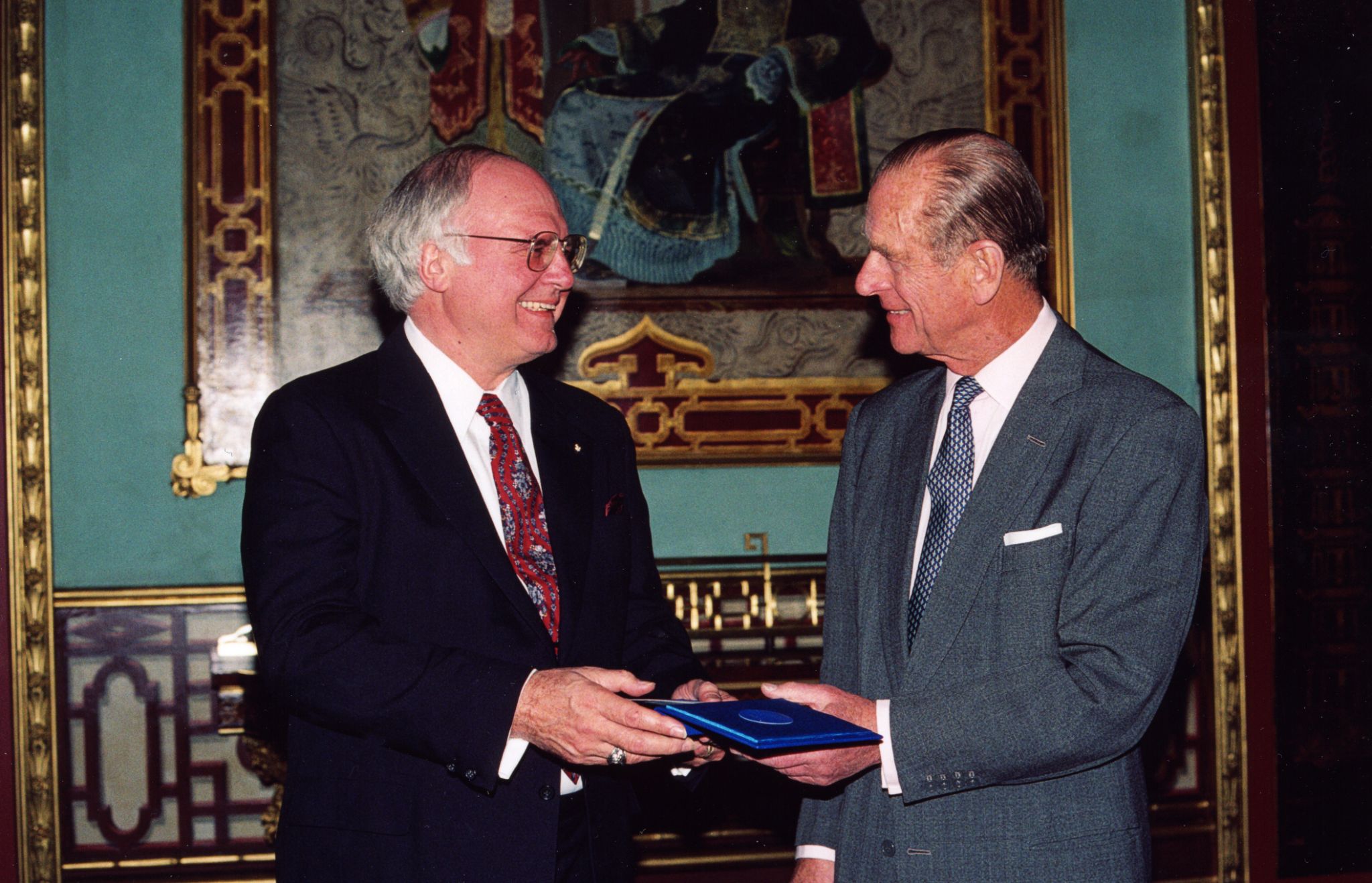In 1973, the first Templeton Prize was given to Mother Teresa. In 2023, we celebrate the 50th anniversary of this award. Over the next 52 weeks, we will highlight each of our laureates and reflect on their impact on the world. From humanitarians and saints to philosophers, theoretical physicists, and one king, the Templeton Prize has honored extraordinary people. Together, they have pushed the boundaries of our understanding of the deepest questions of the universe and humankind’s place and purpose within it, making this (we humbly think) the world’s most interesting prize.
Michael John Novak, Jr., was born in Johnstown, PA on September 9, 1933. He was a former university professor, U.S. ambassador, and the George Frederick Jewett Scholar in Religion, Philosophy, and Public Policy at the American Enterprise Institute from 1983 until 2009. He developed influential new insights into the spiritual foundations of economic and political systems. His book, The Spirit of Democratic Capitalism (1982), and other writings won the enthusiastic notice of world leaders such as Pope John Paul II, Margaret Thatcher, Lech Walesa, and Vaclav Havel.
Novak grew up in Indiana, PA, where his father was an insurance salesman and his mother a stenographer who then became a homemaker. At age 14 he entered the preparatory seminary at the University of Notre Dame. He had an interest in the priesthood and attended Stonehill College, where he graduated in 1956 with a bachelor’s degree in philosophy and English literature. He then went to Rome and attended Gregorian University, where he obtained a bachelor’s degree in theology in 1958. After coming back to the United States and studying at Catholic University in Washington, Novak realized he did not want to become a priest. He went on to complete a graduate fellowship at Harvard where he earned a master’s degree in philosophy in 1966.
Novak became an associate professor of philosophy and religious studies at the State University of New York at Old Westbury and began writing on broader social and political issues. His writings included the book The Open Church (1964), A Theology for Radical Politics (1969), and The Rise of the Unmeltable Ethnics: Politics and Culture in the Seventies (1972), where he critiques the attacks on working-class voters in the U.S. In 1978, Novak joined the American Enterprise Institute, a Washington, D.C. think tank, and retired in 2010. At the time of his death on February 17, 2017, he served on the faculty of Catholic University.
His work and writings on a free society have influenced social and political movements around the world and earned him the Templeton Prize in 1994. The ceremony was held in London’s Guildhall, presided by HRH Prince Philip, Duke of Edinburgh. Mrs. Wendy Brooks, a Templeton family member, gave an address on Novak’s contributions to extending the boundaries of religious thinking into many areas of culture.
-

Michael Novak accepting award from HRH Prince Philip
“Freedom cannot grow — it cannot even survive — in every atmosphere or clime. In the wearying journey of human history, free societies have been astonishingly rare. The ecology of liberty is more fragile than the biosphere of earth. Freedom needs clean and healthful habits, sound families, common decencies, and the unafraid respect of one human for another. Freedom needs entire rain forests of little acts of virtue, tangled loyalties, fierce loves, undying commitments. Freedom needs particular institutions and these, in turn, need peoples of particular habits of the heart.”
– Michael Novak, 1994. Read the full speech
“[The Templeton Prize] encourages understanding of the benefits of diversity of religions, because it believes there are a variety of ways that the creator is revealing Himself to different people.
The award is not given for saintliness, or mere good works but is given for original, fruitful projects that either increase man’s love of God or that lead to a deeper understanding and breakthrough in religious knowledge.”
– Wendy Brooks, 1994. Read the full speech
Still Curious?
Learn more about the 1994 Templeton Prize laureate here.

